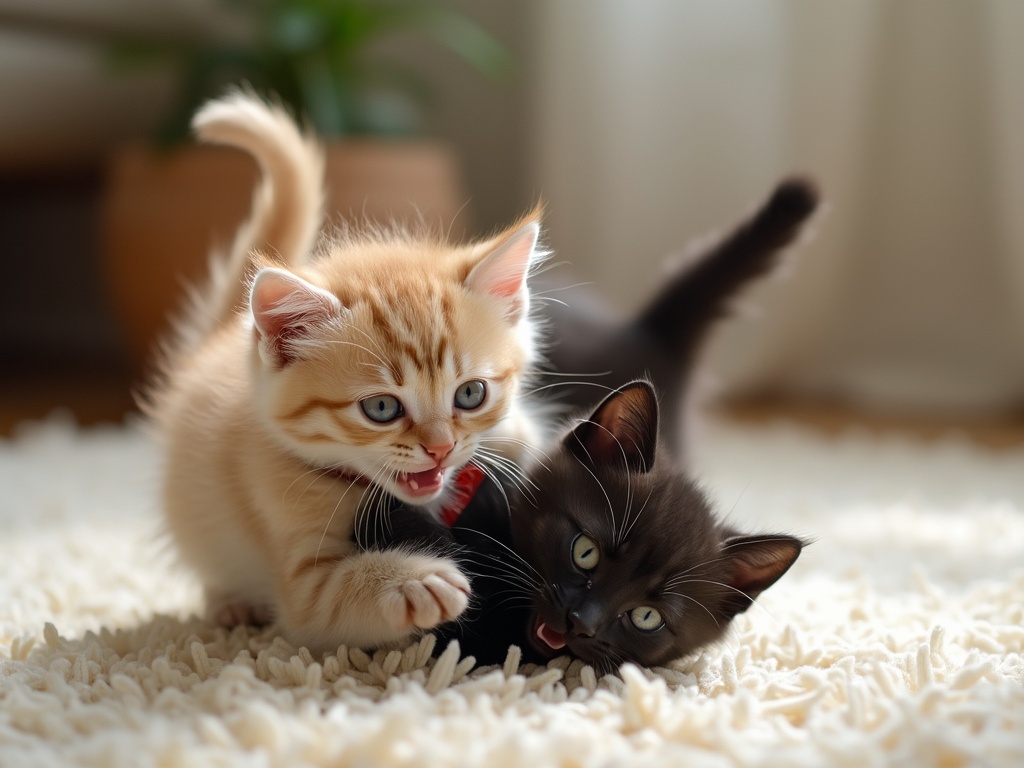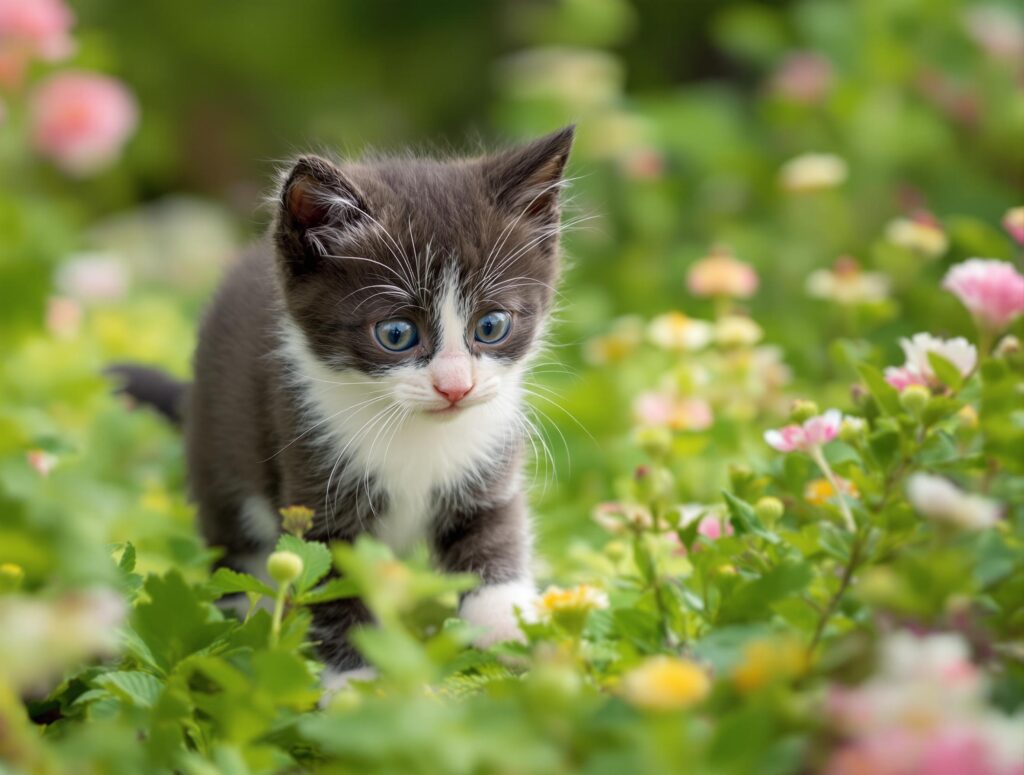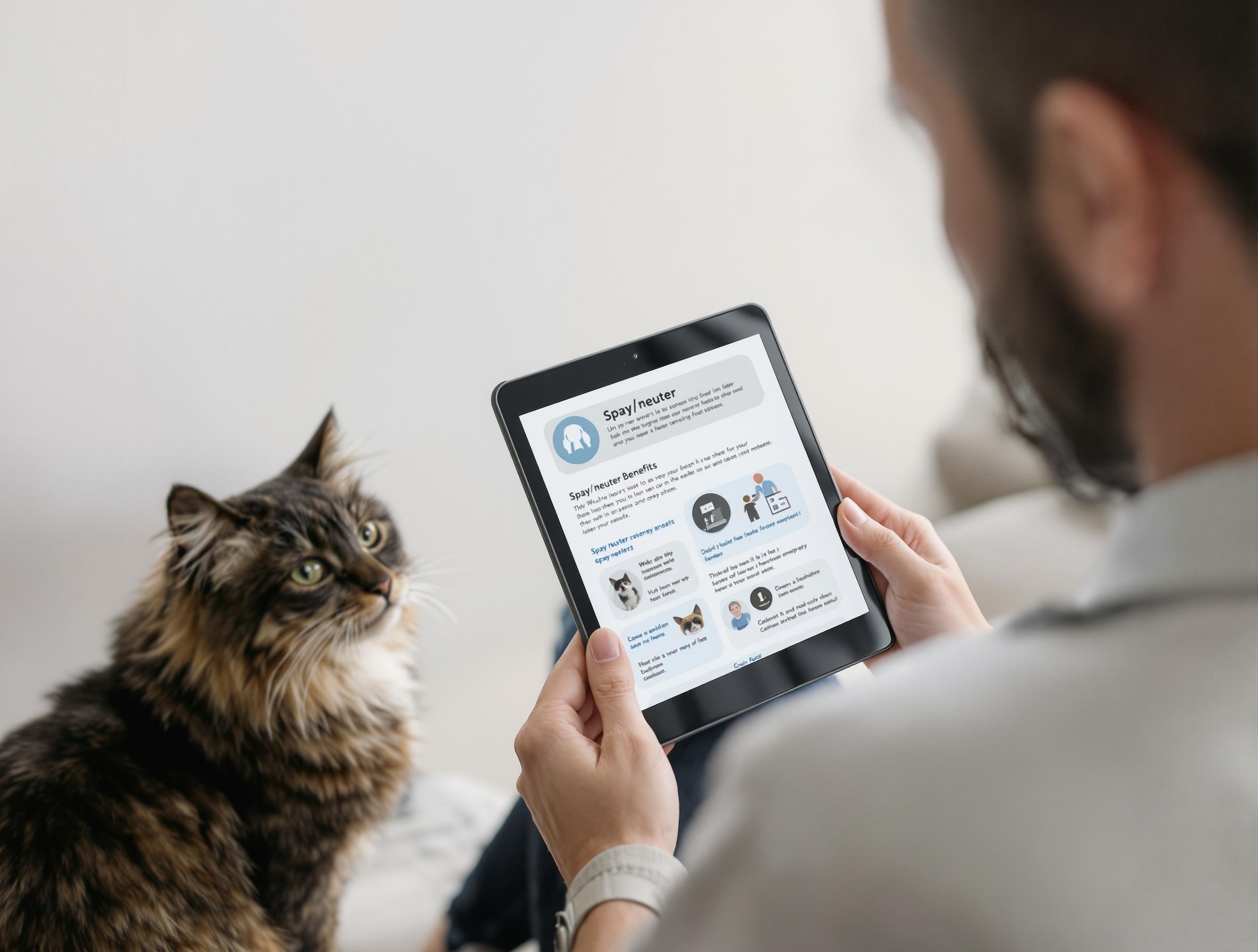Key Takeaways
- A healthy diet, regular vet care, and early socialization are all important parts of helping 8-week-old kittens grow strong and thrive.
- Gentle play and daily positive interactions teach young kittens to be confident and friendly companions.
- Keeping track of their weight, sticking to a feeding routine, and scheduling vet visits early sets your kitten up for a lifetime of good health.
Understanding Your 8-Week-Old Kitten
At eight weeks old, most kittens are growing quickly—gaining about half an ounce per day and typically weighing between 1.5 to 2 pounds. Around this time, kittens begin showing better coordination, stronger climbing skills, and a natural curiosity about the world around them. It’s also a key stage for forming social bonds with people, making it the perfect time to build trust and encourage positive behavior.
During this time, your kitten needs a little extra support to keep up with their physical and emotional growth. From balanced nutrition to gentle play and early vet visits, every interaction plays a role in shaping a happy, confident cat. It’s always a good idea to work closely with your veterinarian to make sure your kitten’s health and development stay on track.
For reliable information on feeding, socialization, and preventive care, explore Cat Health Products on PetMeds.
Getting to Know Your 8-Week-Old Kitten
Your 8-week-old kitten is hitting important milestones, growing more confident and playful by the day. At this stage, it’s all about encouraging healthy development while creating strong bonds through positive experiences.
Key Milestones
Social development is in full swing – Your kitten is beginning to show more personality and independence. Positive interactions with people and other pets help them grow into friendly, well-adjusted adult cats.
Playtime teaches important life skills – Chasing toys and gentle wrestling with littermates help kittens learn coordination, bite inhibition, and how to read social cues. These playful moments also support muscle development and emotional growth.
Toys and activities keep their minds and bodies active – Provide a mix of climbing structures, tunnels, and soft toys to keep your kitten entertained and learning. Supervised play sessions help build confidence and prevent accidents.
Start setting up positive routines – Use this time to gently introduce grooming, handling, and mealtime habits. Keeping things calm and consistent now sets the stage for a smoother transition into adulthood.

Feeding Guide for 8-Week-Old Kittens
Kittens grow fast during this stage, and their diet needs to keep up. This is the perfect time to support healthy development with the right balance of nutrients and feeding habits. Here’s how to feed kittens and make sure your little one stays on track:
- Start the transition to solid food – Mix wet kitten food with a little warm water to create a soft, easy-to-eat texture. Gradually reduce the water over several days until your kitten is eating wet food on its own.
- Offer small, frequent meals – Aim for 4 to 6 small meals a day, with 2–3 tablespoons of food per meal. Stick to a consistent feeding schedule to help your kitten learn when to expect food.
- Choose high-quality food – Look for kitten food that lists real meat as the first ingredient. Avoid products with unnecessary fillers. Explore Cat Food options on PetMeds for vet-recommended choices.
- Store food properly – Keep opened wet food in the fridge, and warm it slightly before serving. Room temperature food is more appealing. Dry food should be stored in an airtight container to stay fresh.
- Monitor weight and appetite – Weigh your kitten weekly—healthy kittens typically gain about a pound per month. A steady appetite and gradual weight gain are good signs that your feeding plan is working.
- Provide fresh water at all times – Place shallow water bowls around your home, away from food dishes. Clean and refill them daily to encourage regular hydration.
Health Care Tips for Thriving 8-Week-Old Kittens
Your kitten’s first vet visit is an exciting milestone and an important part of setting them up for a healthy future. Around 8 weeks old, most kittens are ready for a full check-up and their first round of vaccinations to help build strong immunity. After that, your vet will likely recommend follow-up appointments every 3 to 4 weeks until your kitten is about 4 months old. These regular vet visits are a great way to track their growth and catch any potential health concerns early.
You’ll want to keep an eye out for signs of good health, like bright eyes, clean ears, a shiny coat, and an active, curious personality. Kittens that eat well, play often, and explore their surroundings are generally on the right track. But if your kitten seems lethargic, loses interest in food, or skips meals, it’s best to reach out to your vet right away.
- Practice gentle handling – Spend a few minutes a couple of times a day petting your kitten, gently massaging their paws, and scratching under their chin. This helps them get used to touch and builds trust. Use soft grooming brushes to make it a relaxing experience.
- Reward curiosity – When your kitten explores something new—like a toy or a visitor—offer a tiny treat and some quiet praise. Explore Cat Treats for rewarding good behavior.
- Create a cozy exploration zone – Set up a safe space with fleece blankets, scratching posts, and different textures your kitten can explore at their own pace. Keep the area calm and comforting to help them feel secure.
- Ease them into everyday sounds – Introduce common household noises gradually. Try playing recordings of vacuum cleaners or doorbells at low volume during meals, and slowly increase the volume as they get used to it. Always watch their body language to make sure they’re comfortable.
- Encourage friendly interactions – If you have other gentle, vaccinated pets at home, let your kitten meet them through short, supervised play sessions. Keep it light and low-pressure, giving your kitten plenty of space and time to adjust.
To stay organized, consider starting a simple wellness calendar. Mark down vaccine appointments, note changes in appetite or energy, and track weight gain. These small details can give your veterinarian a helpful snapshot of your kitten’s overall progress. And don’t forget to plan ahead for their spay or neuter surgery—most kittens are ready for it once they hit the 2-pound mark, typically between 8 and 10 weeks old.
For trusted flea and parasite prevention, visit Flea & Tick Control for Cats.
Socialization Tips for 8-Week-Old Kittens
At eight weeks old, most kittens are eager to explore and begin making sense of the world around them. This stage is perfect for gently building social skills and confidence through everyday interactions and positive experiences.
Every kitten develops differently, so be patient and go at their own pace. With consistent care and kindness, you’re helping them build the confidence they need.

Building a Strong Start
At eight weeks old, kittens are developing quickly and benefit from a consistent, nurturing routine. Keeping track of their weight, appetite, and activity levels each week can help them stay on top of their progress and catch any issues early. This is also the perfect time to schedule their first vet appointment for core vaccines, including protection against feline distemper and calicivirus.
Creating a daily rhythm of nutritious meals, interactive play, and gentle socialization helps shape confident, well-adjusted cats. Use a pet health journal to log important milestones, like behavior changes, vaccination dates, and feeding routines. Offering two 20-minute play sessions each day, sticking to regular feeding times, and creating a cozy place to rest all support your kitten’s growth and comfort.
For everything from supplements to everyday care, explore Cat Supplies on PetMeds to help your kitten thrive.




